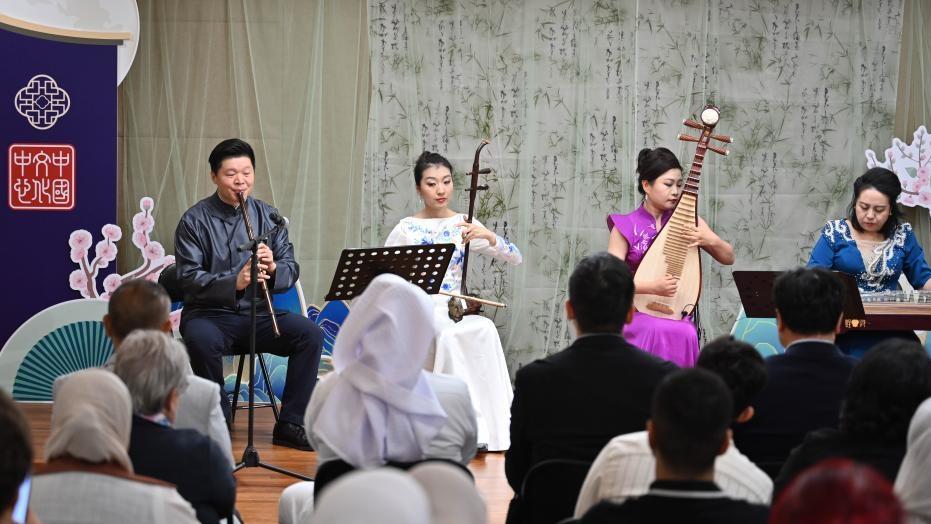Upholding the Pacifist Constitution: the foundation of Japan's standing in the world
Amid mounting domestic and international criticism of Japanese Prime Minister Sanae Takaichi's recent remarks on China's Taiwan, Japan has once again taken a series of provocative steps that raise serious concerns.
These include its first export of lethal weapons since relaxing restrictions on arms exports in 2023, the Liberal Democratic Party's move to initiate discussions on revising its three key national security documents, and the plan to deploy offensive weapons near China's Taiwan region. These actions further reveal Japan's political attempt to deviate from the post-war international order.
As a defeated country in World War II, Japan bears explicit legal responsibilities under international law. Its recent moves constitute a flagrant violation of its obligations, pose a grave challenge to the post-war order recognized by the international community, and create serious risks to peace and stability in Asia and the wider world.
Eighty years ago, the Potsdam Proclamation declared unequivocally that the forces responsible for Japan's wartime aggression must be dismantled without compromise: "There must be eliminated for all time the authority and influence of those who have deceived and misled the people of Japan into embarking on world conquest, for we insist that a new order of peace, security and justice will be impossible until irresponsible militarism is driven from the world."
The establishment of such a new order rooted in peace, security, and justice required the imposition of political constraints on Japan's capacity to wage war and the thorough removal of the ideological foundations of its militarism.
A series of international instruments, including the UN Charter, the Potsdam Proclamation, and the Instrument of Surrender, clearly stipulate Japan's obligations as a defeated country.
The concept of "collective self-defense" in the UN Charter was created to safeguard collective security and prevent the resurgence of fascism; Japan is restricted from exercising this right. The Potsdam Proclamation mandated Japan's complete disarmament and forbade the development of industries that could support rearmament. The Instrument of Surrender, which declared the final defeat of Japanese militarism, commits Japan to "faithfully carry out the provisions of the Potsdam Proclamation."
These legally binding documents form an important cornerstone of the post-war international order and represent the political and legal foundation for Japan's return to the international community.
The four China-Japan political documents and Article 9 of Japan's Pacifist Constitution further underscore its commitment to peaceful development. In the 1972 Sino-Japanese Joint Statement, Japan explicitly expresses deep remorse for its wartime aggression and pledges to resolve disputes by peaceful means. The "exclusively defense-oriented policy," enshrined in Japan's constitution, has served as a fundamental assurance of Japan's pursuit of peaceful development since the war. These are Japan's solemn commitments to its own people, to the Chinese people, and to people around the world. They are serious and binding, and brook no ambiguity or backsliding.
National credibility is the cornerstone of a country's standing in the international community. It is deeply concerning that in recent years, right-wing forces in Japan have increasingly challenged the core principles of its post-war pacifist trajectory. Proposals for armed intervention in the Taiwan Strait, discussions around abandoning the "Three Non-Nuclear Principles," efforts to revise Article 9 of the Pacifist Constitution, and calls for acquiring "counterstrike capability" all signal a troubling departure from Japan's long-standing commitment to peaceful development.
These actions contravene international law, run counter to Japan's own constitutional provisions and political commitments, and signal Japan's attempt to escape the constraints imposed by the Potsdam Proclamation and the Instrument of Surrender. The reemergence of militaristic tendencies is increasingly evident in Japan, and the pacifist foundation that has underpinned Japan's post-war international standing is showing signs of erosion.
The international community has already voiced serious concerns. A Malaysian expert criticized Japanese leaders for their distorted interpretation of World War II history. Meanwhile, the Russian Foreign Ministry posted a video clip of Japan's surrender on social media, urging Japan to draw lessons from history and comply with the enduring pacifist provisions of its Constitution.
Within Japan, public opposition has also been evident. Protesters gathered in front of the Prime Minister's Office, demanding that Takaichi retract her erroneous remarks. In an editorial, Japanese newspaper Tokyo Shimbun condemned any attempt by a short-sighted administration to revise the "Three Non-Nuclear Principles" for its own political agenda as unacceptable. These rational voices represent clear warnings against the resurgence of right-wing militarism and reinforce the call to uphold international law and the post-war international order.
History proves that a nation unwilling to confront its past cannot shape a responsible future. The tragedies of history must never be repeated. Only by learning from history, abiding by international law, and upholding the principles of its Pacifist Constitution can Japan regain and sustain the trust of its Asian neighbors and the international community. This is a responsibility Japan owes both to itself and to the world.
All countries committed to justice have the right and the responsibility to safeguard the international order based on international law and ensure that the hard-won peace of the post-war era is preserved. Should Japan continue on its erroneous course, all nations and peoples upholding justice have the right to re-examine Japan's historical wrongdoing and the responsibility to take firm action against any resurgence of Japanese militarism.
(Zhong Sheng is a pen name often used by People's Daily to express its views on foreign policy and international affairs.)
Photos
 Int'l delegation explores organic tea culture in Baisha, S China's Hainan
Int'l delegation explores organic tea culture in Baisha, S China's Hainan Chamber Concert of Chinese Classical Music held at China Cultural Center in Kuwait
Chamber Concert of Chinese Classical Music held at China Cultural Center in Kuwait 27th Harbin Ice-Snow World to officially begin construction in NE China
27th Harbin Ice-Snow World to officially begin construction in NE China Promotion week for intangible cultural heritage brands opens in Dali, China's Yunnan
Promotion week for intangible cultural heritage brands opens in Dali, China's Yunnan
Related Stories
- Japan's tourism sector braces for winter chill
- Deploying missiles on the island: The specter of militarism haunts Japan
- Japan's gesture of being 'willing to engage in dialogue' is highly hypocritical: Global Times editorial
- FM: Nations entitled to stop return of Japan militarism
- If Japan to follow old path of militarism, it will ultimately end in failure: Chinese spokesperson
- Japan's benchmark Nikkei plunges on weak tech issues
- China urges Takaichi to retract wrongful remarks for strategic, mutually beneficial relationship with China
- If Japan to follow old path of militarism, it will ultimately end in failure: Chinese spokesperson
- Takaichi's dangerous provocations expose Japan's right-wing revisionism, resurgent militarism
- Takaichi's remarks on Taiwan "despicable act betraying diplomatic trust" -- head of Korea-China City Friendship Association
Copyright © 2025 People's Daily Online. All Rights Reserved.





